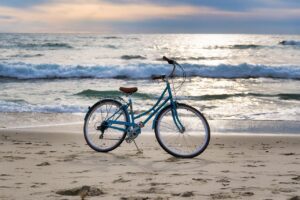
Biotourism vs. Ecotourism: What’s the Difference?
While biotourism and ecotourism are closely related and often overlap, there are subtle but meaningful differences in their focus and goals.
🌱 Ecotourism
Definition:
Responsible travel to natural areas that conserves the environment and improves the well-being of local people.
Key Characteristics:
• Focuses on conservation of natural environments.
• Educates travelers about ecology and sustainability.
• Supports local communities through low-impact travel.
• Often involves visiting national parks, protected areas, or wildlife habitats.
• Activities: birdwatching, jungle treks, safaris, kayaking in mangroves, etc.
Goal:
Protect the environment while offering authentic experiences that benefit local people economically and culturally.
🌿 Biotourism
Definition:
A branch of ecotourism with a more specific emphasis on biodiversity and the observation or study of living organisms (plants, animals, ecosystems).
Key Characteristics:
• Focuses on biological richness of a region.
• Often more science-oriented or educational.
• Encourages appreciation and protection of biodiversity hotspots.
• Activities: visiting botanical gardens, observing endemic species, participating in conservation projects, biological field research, etc.
Goal:
Promote awareness and appreciation of biodiversity and foster efforts to protect it.
🔍 In Short: A Quick Comparison
Aspect | Ecotourism | Biotourism | | |
Focus | Nature & sustainability | Biodiversity & living systems | | |
Scope | Broad: culture, nature, communities | Narrower: flora, fauna, ecosystems | | |
Activities | Hiking, kayaking, community stays | Wildlife observation, plant studies, research | | |
Main goal | Sustainable travel & conservation | Biodiversity education & preservation | | |
Audience | General eco-conscious travelers | Nature lovers, students, scientists | | |
On a place like Patmos, both can coexist beautifully. Ecotourism could emphasize sustainable travel, low-impact lodging, and respect for natural resources. Biotourism could focus on the island’s native plants, marine life, and unique ecosystems—maybe even partnering with scientists or universities.
